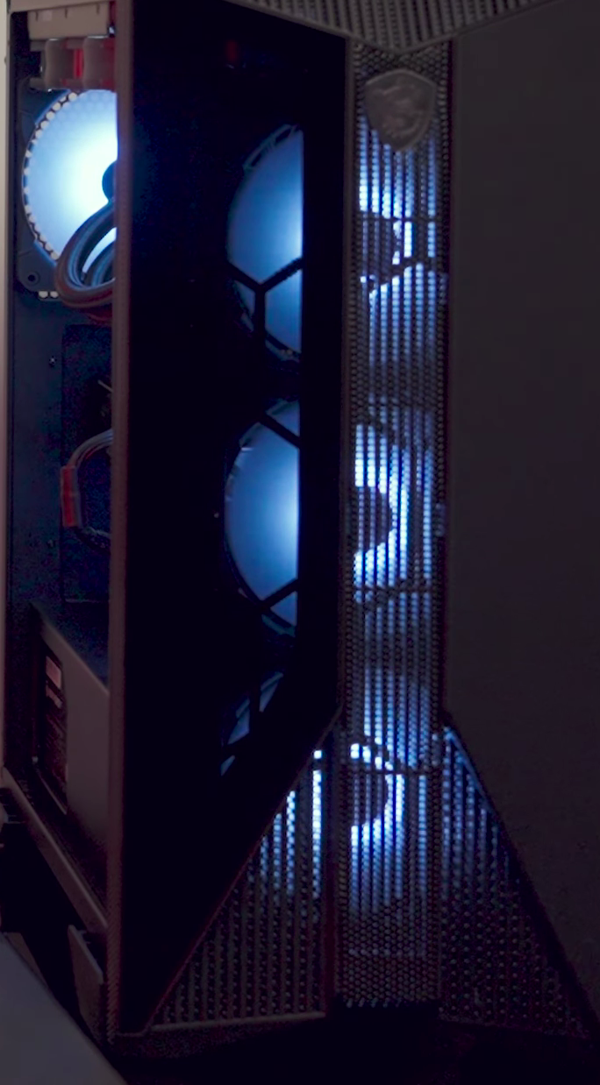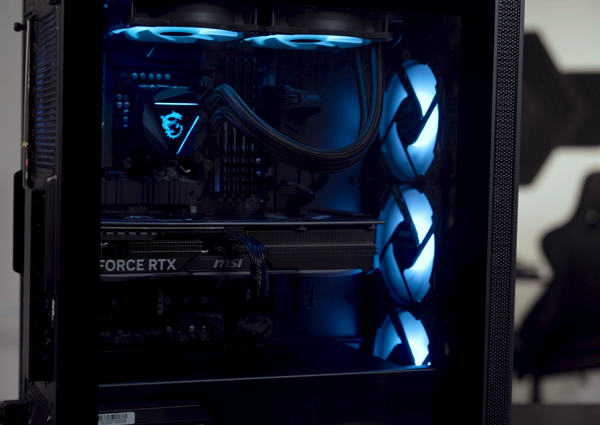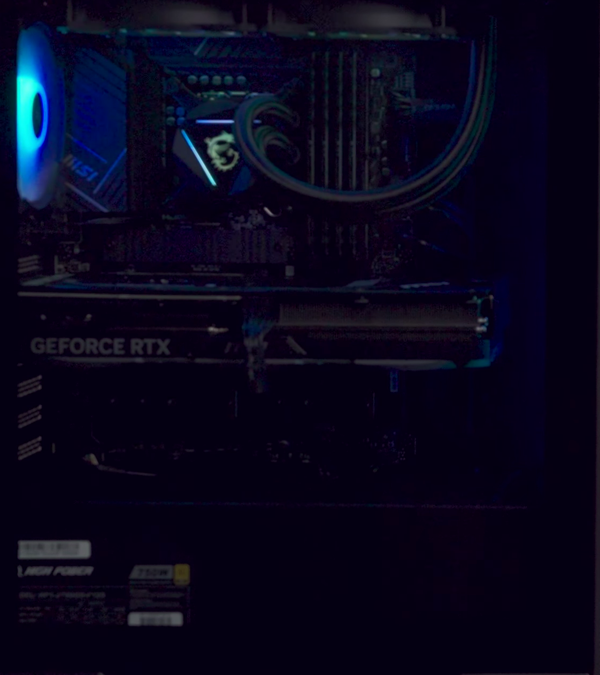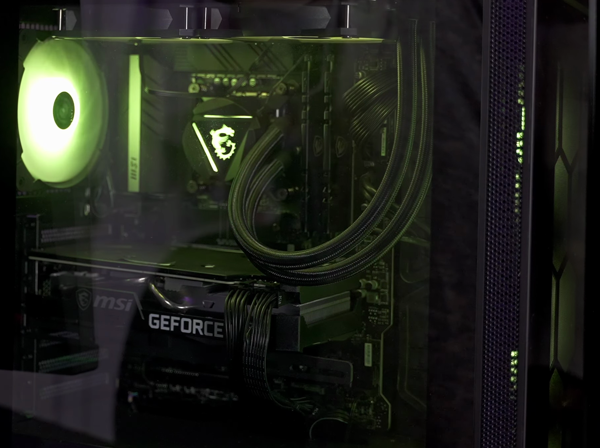Note: As an Amazon Associate I earn from qualifying purchases.
Review: Trying out the MSI Aegis RS Gaming Desktop i7-13700F RTX 4060 32GB 2TB+2TB (2024)
Introduction
I recently got my hands on the MSI Aegis RS, a gaming desktop that boasts the 13th Gen Intel Core i7-13700F processor and an NVIDIA GeForce RTX 4060 GPU. As a gamer and a multi-tasker, I wanted a system that could handle my various needs without breaking a sweat. This desktop seemed to promise just that, with its high-end specs and cutting-edge features.
Specifications
| Property | Value | Property | Value |
|---|---|---|---|
| Specific Uses For Product | Gaming | Brand | MSI |
| Personal computer design type | Computer Tower | Operating System | Windows 11 Home |
| Memory Storage Capacity | 2 TB | Ram Memory Installed Size | 32 GB |
| Model Name | Aegis RS | Included Components | RGB Lighting, Mouse, Keybord |
| CPU Model | Core i7 | Color | Black |
Photos
Click on photos to enlarge them:
Prices
Check prices of the MSI Aegis RS Gaming Desktop on:
Under the Hood Performance
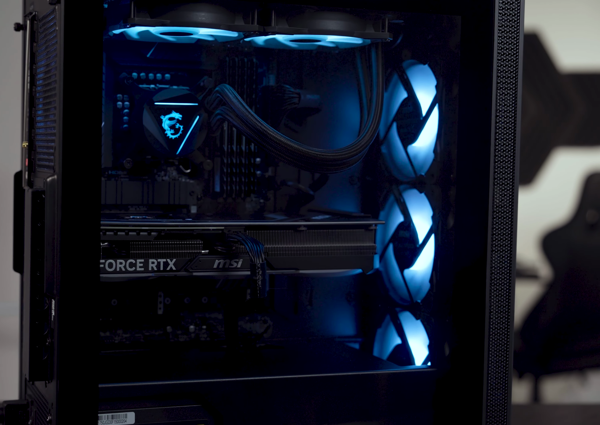
The MSI Aegis RS with the 13th Gen Intel Core i7-13700F is an impressive powerhouse for both work and play. With a base clock of 2.10 GHz and turbo speeds in certain conditions, the 16-core processor offers significant multitasking capabilities, enabling it to handle demanding applications and games with ease. But performance isn’t just about raw speed; it’s about the synergy of components working together.
Here’s a quick breakdown of the PC’s under-the-hood performance:
Speed and Multi-threading: Applications load swiftly, and the machine can juggle multiple tasks without a hitch.
Future-Proofing: With the latest Wi-Fi 5 and Bluetooth 5.1, the desktop is somewhat future-proofed, though newer standards like Wi-Fi 6 are already available.
Connectivity Options: A plethora of ports, including multiple USB 3.2 and a 2.5Gbps LAN, make peripheral connectivity a breeze.
Virtual Reality Ready: The system is VR ready, offering room for immersive experiences without additional upgrades.
Whilst the system is snappy and responsive, it’s not without its limitations. The Wi-Fi generation could be a step behind, as Wi-Fi 6 gains more adoption for its improved speeds and efficiency. Furthermore, while the NVIDIA GeForce RTX 4060 is indeed powerful, dedicated sections on graphics will delve deeper into its capabilities.
On the software side, Windows 11 Home comes pre-installed. For enthusiasts or professionals, a Pro version might be more suitable, but for gaming and general use, Home suffices. Another strong point is the PRO B760-VC WIFI motherboard, offering stable performance and decent overclocking support, though extreme overclockers might seek more robust options.
An important note: the unit came with upgrades, hinting at MSI’s thorough testing and quality assurance procedures. This has all but guaranteed a defect-free experience so far. The idea of an opened box might deter some, but it translates into a machine customized to meet high standards.
Overall, this system is a steadfast ally for gaming enthusiasts and power users. Its adept handling of heat-intensive tasks, as recognized in the cooling efficiency section of this review, matches its processing skills, sustaining performance where lesser systems might falter. While the cutting-edge technology implemented is commendable, a keen eye on emerging standards would make it unbeatable. Balancing out the features, the MSI Aegis RS offers a compelling blend of power and reliability.
Graphics and Gaming Prowess

Delving into the graphics and gaming capabilities of the MSI Aegis RS gaming desktop, I immediately noticed its NVIDIA GeForce RTX 4060 GPU. This particular component has piqued my interest for its promise of delivering ray tracing technology. With ray tracing, I’ve witnessed realistic lighting and shadow effects that significantly enhance gameplay, bringing titles such as Cyberpunk 2077 and Control to life in ways previously unimaginable.
Here are some of the aspects to consider:
Pros:
Realistic in-game lighting enhances immersion.
The Ada architecture offers energy efficiency and performance.
Future-proofed for upcoming titles that utilize intense graphics.
Cons:
The RTX 4060 might struggle with 4K gaming at maximum settings.
Not the top-tier GPU, meaning it may not fulfill the needs of hardcore enthusiasts.
Even though it’s not the top of the line, the RTX 4060 has handled everything I’ve thrown at it with ease. Games run smoothly at high settings, and I regularly enjoy frame rates that exceed my expectations. As someone who appreciates the nuances of high-fidelity graphics, the ray tracing feature does not disappoint. However, for 4K gaming aficionados, this GPU might fall short at ultra-high settings, which is something to keep in mind.
The i7-13700F processor is another highlight, seamlessly handling my multitasking needs. Whether I’m streaming, recording gameplay, or switching between heavy applications, this supercharged processor keeps up.
I value the inclusion of both an SSD and HDD for storage, offering quick load times for games and ample space for my extensive library. The 32GB DDR5 RAM is more than sufficient, ensuring a smooth and responsive experience across various applications.
However, one possible drawback is the future-proofing of this configuration. While the system is well-equipped for today’s titles and moderate content creation tasks, the ever-evolving nature of software and games means that it may not hold the top spot for long. Additionally, the GPU may need upgrading sooner if you’re aiming to consistently hit the highest benchmarks in future AAA titles.
Despite these considerations, my personal gaming sessions have yet to meet a hiccup. I’ve been satisfied with the desktop’s performance, and the MSI Aegis RS remains an excellent choice for those looking to balance cost with performance. The system is VR-ready, ensuring that even more immersive gaming experiences are within reach.
In terms of aesthetics and practicality, the inclusion of a gaming mouse and keyboard out of the box is a nice touch, preventing the need for immediate additional purchases. The sleek black tower also adds a degree of sophistication to my setup.
Overall, the MSI Aegis RS strikes a strong balance between gaming performance and visual fidelity. While not without limitations, it’s a solid choice for gamers looking to enjoy current titles at their best.
Storage and Memory Capacity

In terms of storage and memory capacity, the MSI Aegis RS is equipped to handle my gaming and multi-tasking needs with ease. It comes packed with a 2 TB M.2 NVMe Gen3 SSD paired with an additional 2TB HDD, which is a significant amount of space for my game library and large files.
Pros:
Fast boot times and load speeds with the SSD.
Ample storage for games and media on the HDD.
Future-proof 32 GB DDR5 RAM is fantastic for multitasking.
Cons:
The HDD is slower than an SSD, which can affect retrieval times for files not stored on the SSD.
Upgrading to larger or additional SSDs could be costly.
With 32 GB of DDR5 RAM, the latest standard, running at 4800 MHz, multitasking has been a breeze. I can keep multiple programs and browser tabs open without experiencing performance hiccups. The high-speed RAM also appears to enhance the overall responsiveness of the system, giving me an edge in gaming and productivity tasks.
However, I must admit that despite the generous storage capacity, I’m always mindful of the drawbacks. The HDD, although spacious, doesn’t match the SSD’s speed, leading to slower access times for the data I don’t keep on the SSD. As someone who prefers lightning-fast performance across the board, this can be a slight inconvenience, although it’s a common one given current hardware prices.
Another point to consider is future upgrades. Storage needs might grow over time, especially with the size of modern games and applications. Upgrading to a larger SSD, or adding more SSD storage, could potentially be costly down the line. It’s a consideration worth noting for users who prefer a fully solid-state storage solution.
In practice, the combination of SSD and HDD storage meets the demands of my day-to-day use, providing a good balance between speed and capacity, and the 32 GB of DDR5 memory is more than adequate for my current needs. While it’s challenging to predict future requirements, the Aegis RS stands as a robust baseline for both gamers and heavy multitaskers like myself.
Overall, the MSI Aegis RS’s approach to storage and memory capacity offers a modern and practical solution. With the large and fast SSD for my OS and frequently used applications, and the HDD for additional storage, I find myself well-equipped for the present with an eye towards future upgrades.
Cooling Efficiency During Play

Efficiency and effectiveness in cooling are crucial for maintaining the longevity and performance of a gaming desktop. The Aegis RS equipped with RGB Fan Cooling doesn’t disappoint in this aspect.
Effective Airflow: The case design allows for good air circulation, ensuring that the hot air is promptly expelled.
RGB Fan Cooling: Not just for show, these fans contribute to maintaining lower temperatures inside the chassis.
Noise Level: The cooling system is relatively quiet, considering the level of performance it supports.
Temperature Control: Even during extended gaming sessions, the CPU and GPU temperatures remained within safe operational limits.
However, there are some nuances to consider:
RGB Fan Utility: Customization of fan settings requires familiarizing oneself with the MSI Center software, which might be a bit overwhelming for novice users.
Dust Build-up: While the fans are effective, they do attract dust, which necessitates regular cleaning to maintain optimal performance.
In performance terms, the cooling system handles the heat output from the 13th Gen Intel Core i7 and RTX 4060 admirably. My gaming sessions, often stretching for hours, have shown that the system keeps its cool, avoiding any thermal throttling which could impact performance. This reassurance means I can focus on my gameplay rather than worry about overheating.
The fans run at a noticeable but not irritating sound level — a low hum that fades into the background with the use of headphones or speakers. It’s a small price to pay for the peace of mind that comes with knowing your system is well within temperature thresholds.
During routine maintenance, I have noticed that like any air-cooled system, the interior does attract dust over time. I’d recommend periodic cleanings every few months to prevent any potential buildup from impairing thermal efficiency. Not a major setback, but it’s something to be mindful of for optimal system upkeep.
The customization options provided by the MSI Center software are comprehensive but do require some learning curve. It allows for fine-tuning of the cooling performance and aesthetics according to personal preference, a welcomed feature for enthusiasts who like to tweak their setup to perfection.
In sum, the cooling performance of the Aegis RS is robust, ensuring that the high-end components housed within are kept at optimal temperatures for maximum efficiency and longevity. The system’s cooling capabilities may fly under the radar compared to its other impressive features, but they are the unsung hero that enables peak performance and reliability.
